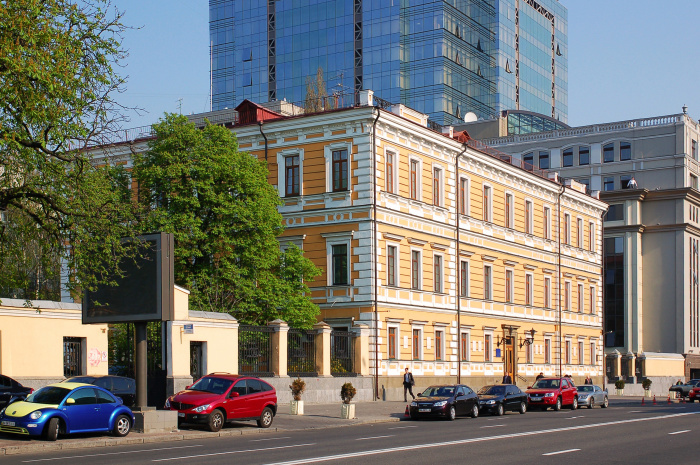Perspective: Ukraine invasion through the prism of science diplomacy

Pierre-Bruno Ruffini, Professor of Economics at the University of Le Havre and member of InsSciDE, shares a reflection on the science diplomacy in the context of the Russian invasion of Ukraine.
Many scientific organizations in Western countries have taken a position on the war triggered by the invasion of Ukraine by the Russian army on February 24. In addition to condemning this military aggression, these organizations have affirmed their solidarity with the Ukrainian scientific community, but also with Russian researchers who expressed their opposition to the government of their country. Going further, some of them such as the German Research Foundation, the French CNRS or the Massachusetts Institute of Technology, to name but a few, have cancelled upcoming scientific events involving Russia, and have come out against the implementation of new projects with official Russian institutions.
The war in Ukraine and the reactions to it among researchers and research institutions can be observed through the prism of "science diplomacy", which puts at its center the interactions between international scientific cooperation and foreign policy issues. In its common understanding, science diplomacy would make it possible to maintain contact between countries and peoples when dialogue between states becomes difficult or even disappears. It is thus recalled that during the Cold War, cooperation between American and Soviet researchers never ceased. The good performance of scientific exchanges between the United States and Cuba, or between the United States and Iran in the absence of official diplomatic relations is also underlined, giving evidence of the capacity of scientific cooperation to be a resilient form of dialogue. In periods of geopolitical tension, individual relations between researchers can even become the instrument of a parallel diplomacy. But are we in this situation today, when a war is going on? The freezing of cooperation decided by institutions representing the scientific community is a particular variation of the sanctions taken by many Western countries against Russia. According to the argument generally accepted, sanctions aim to isolate Russia on the international scene and to weigh on its economy, in order to force those who rule this country to change their policy. Scientific sanctions, like sanctions in general, are intended not only to protest, but also to punish. They are in line with decisions by political authorities such as the European Commission, which decided to immediately suspend all funding that Russian teams were to benefit under current programs, and to suspend the commitment to new bilateral cooperation with Russia.
Sanctions sharply call into question the mantra of science diplomacy: it is no longer about encouraging international scientific cooperation to help improve the geopolitical order, but about stopping cooperation! It is understandable that the war puts off the scientific exchanges between the countries whose armies collide: Russia and Ukraine. But the advent of war is also a blow to the will to cooperate with Russia of countries which have sided with Ukraine, and for which war is widely perceived as an initiative out of proportion with regard to discords existing between Russia and Ukraine, and between Russia and NATO. The choice of scientific sanctions, however, has an essentially symbolic value: the timescale of research is not that of economy or finance, and the suspension of scientific cooperation cannot in any way weigh on the movement of troops, nor on the short or medium term orientations of Russian policy. However, sooner or later, the military confrontation in Ukraine will end and a peace agreement will be found. It is in the period that will follow that science diplomacy, which is limited to helping scholars in danger during the “hot” war, will be able to regain its strength and to replace the logic of boycott that currently prevails. For this, institutions that have called for scientific sanctions must reflect on the conditions for their lifting without waiting that Russian bombs stop falling on Ukrainian cities. Will the end of sanctions depend on the cessation of fighting? On the withdrawal of all Russian troops? On the content of the peace agreement that will be found? The scientific organizations that have engaged in sanctions took the precaution of updating their position according to the evolution of the conflict. They also distinguished between official scientific relations, which must be frozen, and individual relations with Russian researchers, which should be maintained and thanks to which the spirit of science diplomacy can remain alive during this critical period. In this same spirit, the freezing of institutional cooperation and the exclusion of official Russian scientific structures should not be extended beyond the war phase. The time will come when it will be necessary to rebuild the research infrastructure in Ukraine, to patiently re-establish ties and restore confidence between Russia and its main scientific partners. Researchers from all the countries involved directly or indirectly in the present conflict will have then an important role to play: to be among the informal diplomats of this work of reconciliation.
Written April 11, 2022
Originally published on LinkedIn
Photo of presidium building of the National Academy of Sciences of Ukraine
By © AMY / Wikimedia Commons, CC BY-SA 3.0, https://commons.wikimedia.org/w/index.php?curid=31276838